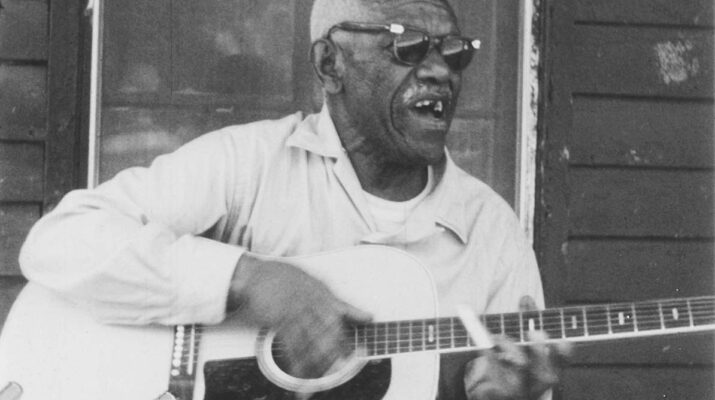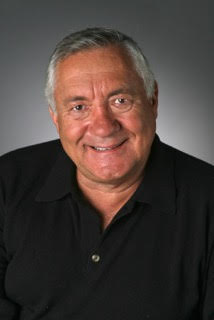A fifty-year journey encompassing the roots of American music, the upheavals of the civil rights movement, the strength of memory, the enduring power of this foundational music, and a reflection on the treasures of personal experience, both lost and found.
By Ted Reed
When I was moving my Beverly, Massachusetts office two years ago, I uncovered my 16mm black and white film that I made as a film student in 1971. Filmed with my friend Tim Treadway, we traveled from Boston through Kentucky, Tennessee, Mississippi, and Louisiana to find and record some of the last living blues legends. My first film, THINKING OUT LOUD, a twenty-minute documentary, was seen at several festivals, and then stored away.
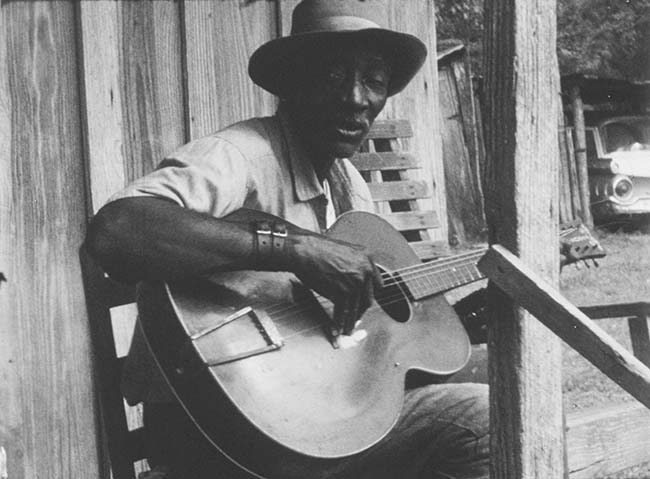
Fast forward fifty years. After I uncovered my stored film, I was determined to retrace my 1971 journey to see what had changed in the birthplace of the blues. On this journey, while I was looking for the source of the blues in the flatland cotton fields of the Mississippi Delta, and the lonely highways that crisscrossed the region, I felt the presence of the spirits of the departed blues artists. I also found a new respect for the cultural value of a musical form that had been all but ignored in the south of a half-century ago. Today, rock fans, from all over the world, raised on music adopted from rural Black communities, were flocking to that wellspring in record numbers. In many states, museums and historic markers had sprung up to guide a steadily growing caravan of international tourists. Venues from roadside Juke Joints to newly constructed concert halls offered musicians, both veterans and young performers, places to perform almost every night of the week.
My fifty-year journey led to the compilation of then and now in my award-winning documentary film, THE BLUES TRAIL REVISITED. A ninety-minute film, created for digital and theatrical release, features exclusive performances with some of America’s true blues legends, old and new. It explores how the blues has changed in the last fifty years, its impact on American culture, popular music, and the economy of the American south.
Recent accolades for my film include one by the renowned Joyce Kulhawik, previously the arts and entertainment anchor for CBS affiliate WBZ-TV News in Boston, another by Roger Stolle, owner of Cat Head Promotions which runs the annual Juke Joint Festival in Clarksdale, Mississippi, and also Paul Benjamin, who manages several Blues Festivals throughout the US.
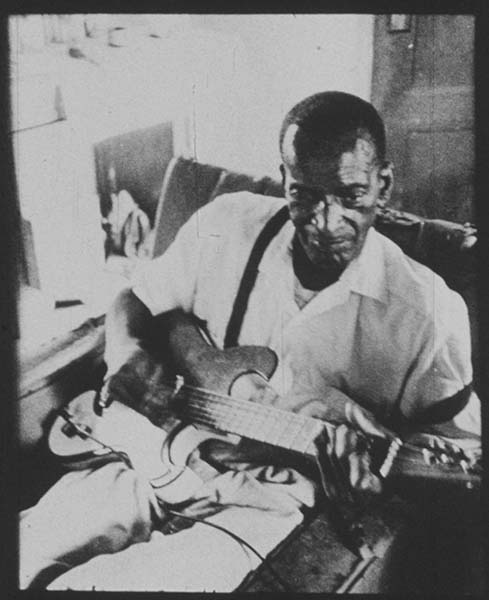
“The film puts you in the passenger seat right next to the filmmaker rounding the bend on a fifty-year old odyssey: to excavate the last living blues legends and his own youthful filmmaking past. Reed once again rattles back through time and the deep south, brushing the dust off the towns, tunes, and sweat-soaked juke joints where the blues bloomed– and still do. The movie is a sweet sad song of praise for those unsung, who wove their troubles and dreams into the original fabric of American music.”
Joyce Kulhawik, Arts & Entertainment Critic
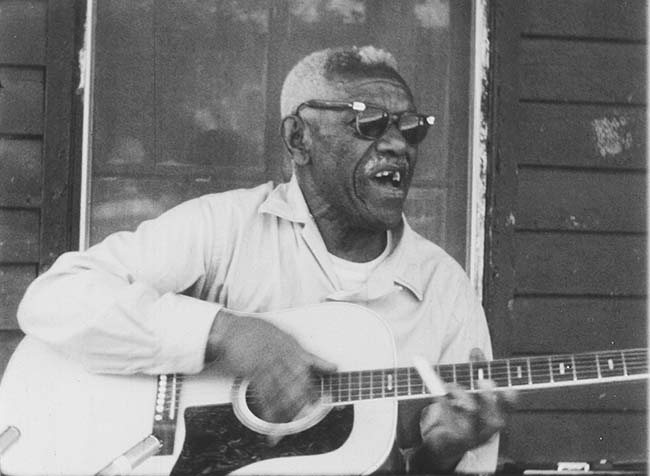
“A story of blues friends, fans and follow through, Ted Reed’s remarkable BLUES TRAIL REVISITED spans 50 years—tying together past Southern blues traditions with those of the present day and perhaps even the future.”
Roger Stolle, Cat Head Promotions
“The memories that this film brought back were outstanding and made me want to go back and discover some of the places that I missed…This movie will also make anyone that is not into the Blues or Mississippi change their mind.”
Paul Benjamin, North Atlantic Blues Festival
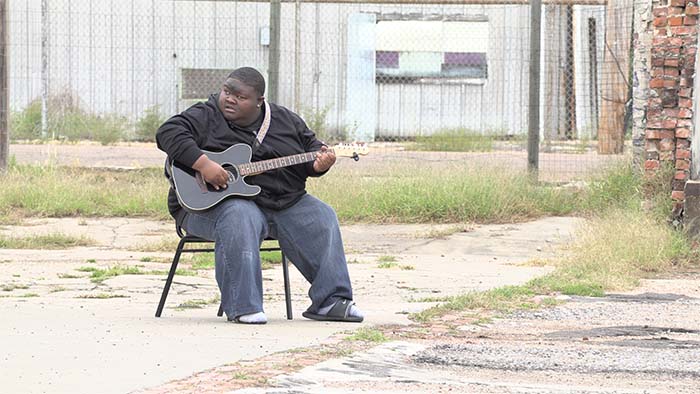
In 2019, using concert footage originally intended for THE BLUES TRAIL REVISITED, I released the award-winning documentary film JUKE JOINT FESTIVAL REVISITED during the virtual Juke Joint Festival event in Clarksdale, Mississippi. My primary goal was to help drive donations to the Blues Foundation COVID-19 fund, and the Mississippi Blues Benevolent Fund that supports Blues musicians.
Just over a year ago, I partnered with Visit Clarksdale and The Blues Foundation to launch a biweekly podcast, The Blues Trail Revisited podcast, available for download at https://bluestrailrevisited.podbean.com/.
I continue to host screenings to sold out venues such as The Balboa in San Francisco, California and The Cabot in Beverly, Massachusetts.
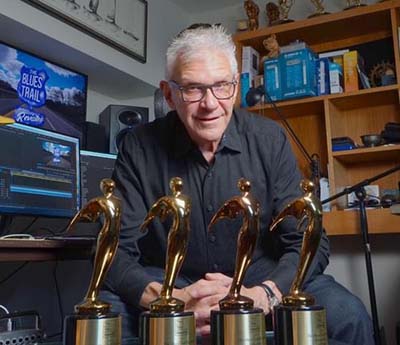
Photo courtesy of Roger Ward
(Pub:) Grammy and Emmy-award winning documentary filmmaker Ted Reed has been producing, directing, writing, and shooting films and television since the 1970s, creating documentaries, commercials, animated features, and broadcast and streaming series. His storytelling expertise has led to award-winning shows about gender equality, the future of communications technology, immigration, national parks, West Indian music, space tourism, assisted suicide, Jewish innovators, and handgun violence. He is the recipient of multiple awards.
During his career he partnered with the MIT team who pioneered internet streaming video technology, produced New England’s first local all-digital TV broadcast, and pioneered the use of interactive video for large business meetings.
Ted has taught and lectured at Harvard University, Tufts University, Boston University, Endicott College and the Boston Film and Video Foundation. He has brought filmmaking courses to elementary schools, community groups and retirement homes, and continues to run film, photography, and music workshops at his office in Gloucester, Massachusetts.
For more information visit www.tedreedproductions.com. THE BLUES TRAIL REVISITED is available to rent via www.bluestrailrevisited.com. You can reach Ted Reed at ted@tedreedproductions.com.

